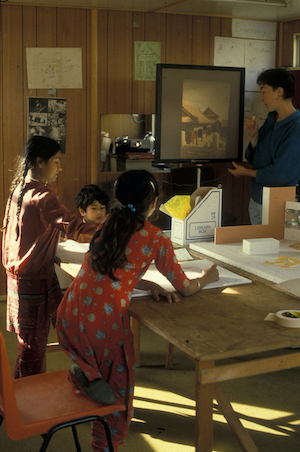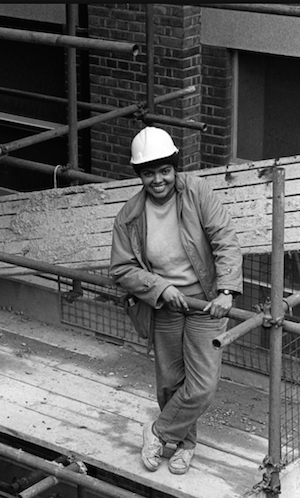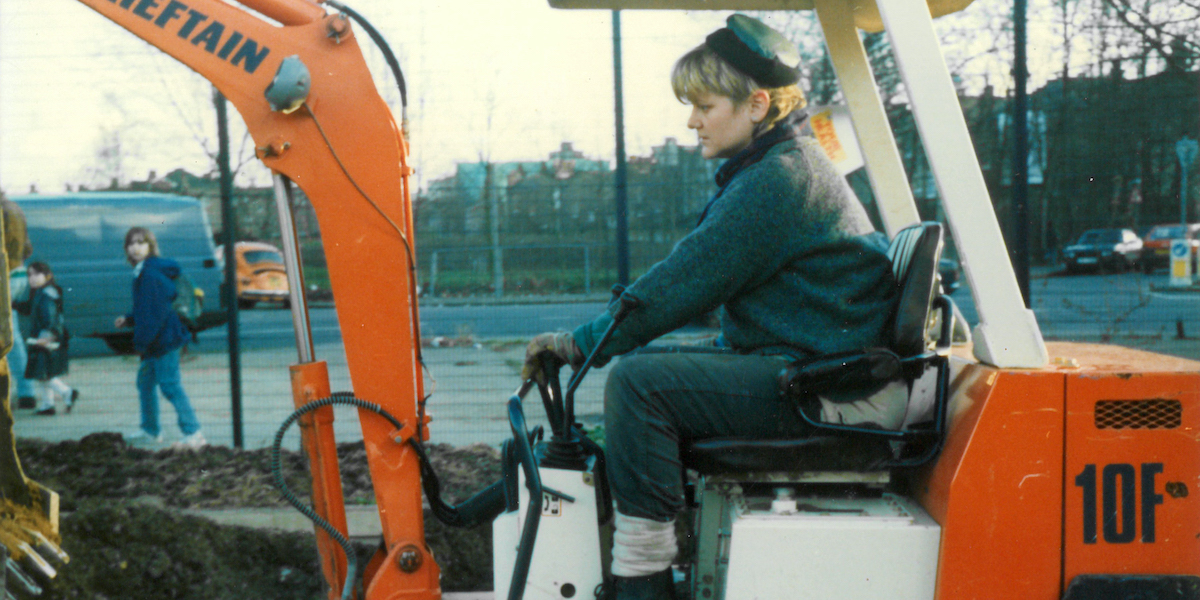Throughout 2021, the Barbican’s Level G programme will present How We Live Now: Reimagining Spaces with Matrix Feminist Design Co-operative. This multi-layered project includes an installation, publication and huge events programme.
Using the previously unseen archive of the Matrix Feminist Design Co-operative as a jumping-off point, the project will explore a series of important social questions: who are our buildings and shared spaces designed for? Who is excluded from our designed environment, and what effect does this have on the communities who live there?

Co-curated by Matrix founding member Jos Boys, How We Live Now introduces archival and contemporary approaches to design that aim to empower voices and groups often excluded in the design of buildings, including Black and Asian women’s organisations, community and childcare groups and lesbian and gay housing co-operatives, to propose and explore more inclusive ways of designing, building and occupying spaces.
With the Covid-19 pandemic only sharpening the existing inequalities within our cities and homes, such as a lack of access to safe, affordable housing, community facilities and green spaces, the question Matrix began to explore of how we can reimagine these spaces in more equitable ways, feels increasingly urgent.
Active in London from 1981-1994, Matrix was a women’s co-operative with a non-hierarchical structure. The collective worked solely on state-funded, social building projects including women’s and refuges centres, facilities for women and children, construction training workshops and lesbian and gay housing projects.
They also provided publicly funded architectural advice; helped establish educational programmes to increase access for women into architecture and building; as well as giving talks and writing about how space and gender are related through a variety of events and publications.
NOW READ: Guildhall School of Music & Drama’s free April and May broadcasts
A free installation on the Barbican’s Level G will feature rare films, drawings, photos and architectural models from the Matrix archive, presenting the co-operative’s use of radical participatory and collaborative methods across a range of projects and programmes alongside more recent examples of feminist design practices.
The accompanying exhibition catalogue, Revealing Objects, is an experimental publication that combines reinterpreted materials from the Matrix archive with contemporary responses to the key themes of the project.

Contributions include a manual for understanding how the layout of our homes impacts how we live in them, conceived by Edit; a map highlighting buildings designed by women in London produced by collective Part W; a poster by the research project Manual Labours reflecting on ideas of care and support in the workplace; and writing by Decosm (Decolonise Space Making) considering how the legacies of colonialism affect the design of our cities.
It also features an activity sheet about how senses other than the visual play a role in our experience of space, designed by DisOrdinary Architecture which co-develops inclusive design processes with disabled artists; as well as a visual essay exploring how the London borough of Tower Hamlets manifests certain ideas of power and control through built space, produced by Afterparti, a platform for underrepresented voices in architecture and design.
Jos Boys, Matrix founding member, said: “At the core of the work by Matrix was a recognition that building and urban design often fail to consider the richness of our multiple ways of being in the world, or the various ways in which societies have devalued certain groups across different places and times.
“A persisting reliance on ‘standards’, ‘universals’ and ‘norms’ that often continue today, reinforce stereotypes about what certain people do and how they should behave – that a ‘woman’s place should be in the home’, for instance, or that it is possible to ‘be in the wrong place at the wrong time.”
Lead image: Construction photograph of Walworth Garden (formerly Walworth City Farm),a collaboration between Matrix Feminist Design Cooperative and students from the Women intoArchitecture and Building (WIAB) access course at the University of North London. Photograph courtesy of Walworth Garden.







